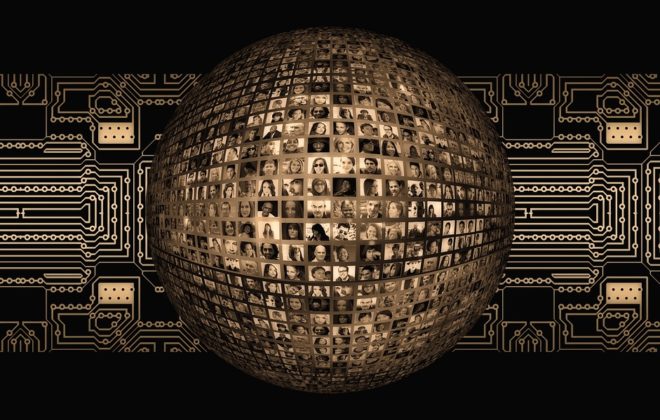Four Reasons Europeans Need Not Be So Afraid That Their Elections Will Be Manipulated Through Social Media
Many Europeans are afraid that democratic elections might be manipulated through social media. The Cambridge Analytica and Facebook scandal has installed a fear that voters could be targeted through their social media accounts, and that votes could be swayed through micro targeted adds and campaigns. There are, however, four reasons to believe that we do not need to be afraid.
We need to keep in mind the specific context that created these fears. It doesn’t exist in Europe today. Cambridge Analytica played a role in the US Presidential elections and the Brexit referendum, both in 2016. There are several specific conditions in these two settings that allowed Cambridge Analytica to reach a high degree of accuracy in measuring citizens political profiles through their social media accounts. Without such accuracy, swaying voters through micro targeting would not be successful. So how is the situation different in most European countries today, and why exactly should we not be afraid?
Changes in law and access to Facebook data
First of all, the law, research ethics and access to Facebook data have changed. Cambridge Analytica had access to millions of social media accounts from both the USA and the UK. In the wake of the public outcry over the scandal, Facebook has significantly reduced researchers’ access to their data. The so-o called APIs that allowed researchers to easily access Facebook data are now closed. It is also no longer possible to automatically get all the data from people’s friends on social media. Add to this stronger regulation in the form of the European Union’s GDPR legislation and the scenario of a new Aleksandr Kogan collecting millions of social media profiles and selling this data to a dubious commercial company disappears. Today, doing what Kogan did is neither legal, technically possible, nor ethical. Should an academic in the EU try to do it again, it would in all likelihood be the end of his or her career.
Different political landscape
Second, the political landscape in most European countries is much more complex than in the USA and the UK. In the American presidential elections, and in the Brexit referendum, citizens had a binary choice. It was Trump or Clinton, Leave or Remain. Such binary choices are comparatively easy to model in the complex algorithms needed to accurately predict a person’s political preferences based on social media data. The situation in most of Europe is markedly different. Take Norway as an example. The target to predict – voting preference – is everything but binary. At least nine major political parties participate in Norwegian elections. In Norwegian politics, like in politics in most European countries, the economic left competing with the economic right over issues like taxation and welfare state provisions are not necessarily the same as the cultural progressives fighting conservatives on issues like abortion or immigration. Class conflicts, as well as new and old cultural conflicts all partially overlap and partially cross-cut each other. The political landscape in most European countries is simply much more complicated than in the majoritarian systems of the US and the UK, where issues tend to be folded in a single choice between two major parties. This means that computer programmers designing algorithms to predict vote choice have a lot more complex target to aim for, which in turn reduces the accuracy of their models.
Different cultural setting
Thirdly, the cultural setting is less outspoken and less polarized. In the USA especially, many organizations have a clear liberal or conservative profile. If you like or follow them on Facebook, it is often rather obvious whether that makes you more likely to vote for a republican or a democratic candidate. It is also culturally acceptable to express your political preferences clearly and outspokenly. In Norway, on the other hand, many civil society organizations do not have a clear partisan profile. Consequently, liking them does not tell us much about your political preferences. Futhermore, a strong norm of consensus exists. Norway is a monocultural country. You may vote for whichever party you like, but the norm of Janteloven prevents you from expressing your preference loud and clear. If people restrain themselves from expressing their political opinion on social media, either directly or indirectly through liking partisan organizations, it logically becomes more difficult to accurately predict their political preferences based on their profiles.
Big data smaller in Europe
Fourthly, there are simply fewer people and thus fewer social media profiles to work with. In other words, the Big Data in much of Europe is considerably less Big than in the USA. Besides fewer inhabitants, the percentage of the population on social media is in many countries, particularly in the East and South of Europe, considerably lower than in the US and UK. Fewer profiles means less material to train algorithms with, and thus less accurate predictions. The less accurate the predictions are, the smaller the chance of successfully manipulating elections.
All in all, these four reasons lead me to believe that we do not need to be so afraid that our elections in Europe can be manipulated via social media. At this stage, these are simply reasoned beliefs, based on interpretation of the specific legal, ethical, technical and cultural challenges facing the would-be Cambridge Analyticas of Europe today. Empirical research needs to find out to what extent these arguments are valid.
Pieter de Wilde is Associate Professor in European Studies at the Norwegian University of Science and Technology (NTNU), Trondheim, Norway. He studies political conflict over European integration and globalization.
Pieter De Wilde
Related Posts
1 Comment
Comments are closed.





This article seems to answer, why election cannot be manipulated in short-term as in case of Brexit and US presidential election. But manipulating people by trapping them into information bubbles is happening from the time of invention The Facebook Algorithm.
And regarding point 2: more choices even with fewer data samples still seem doable for modern ML. 9 classes and ~million data samples is fine even for unsupervised learning – which is this task.
I agree with that same situation as happened with Cambridge Analytica would not happen that easily. I think the stated points are interesting. I just do not draw the same conclusion, as this task has a too significant impact for a silly small price.